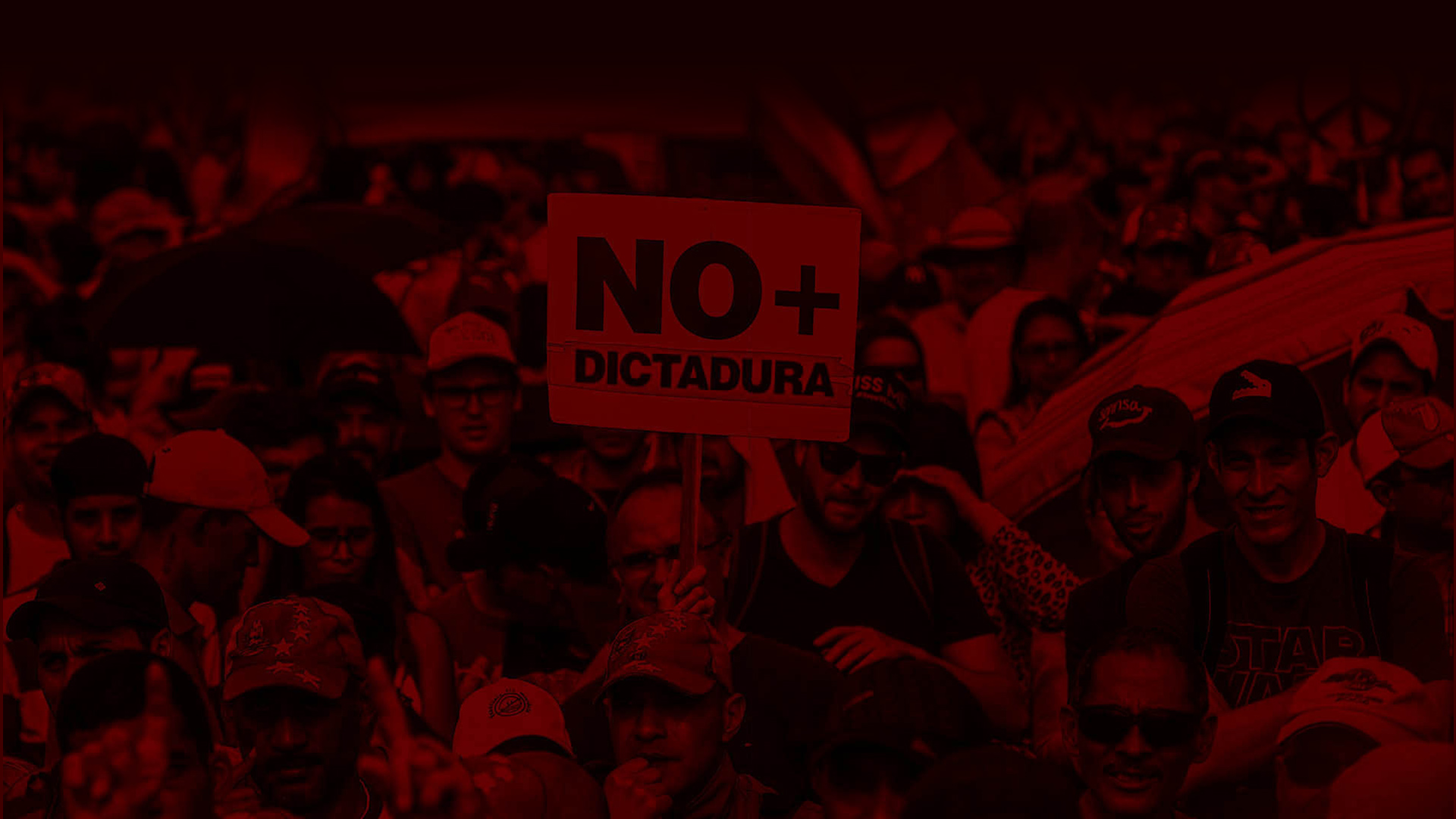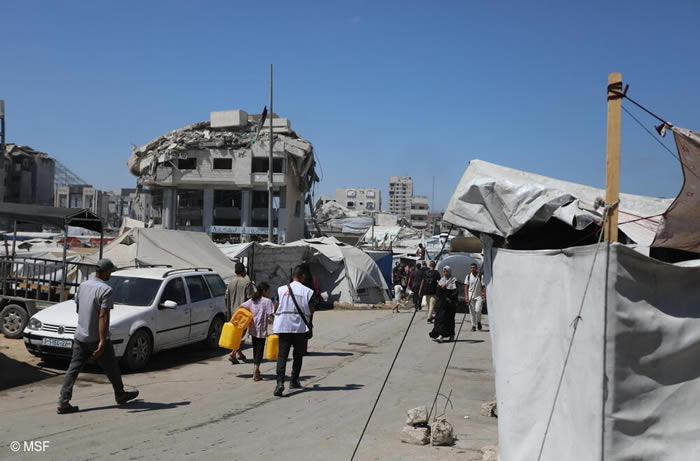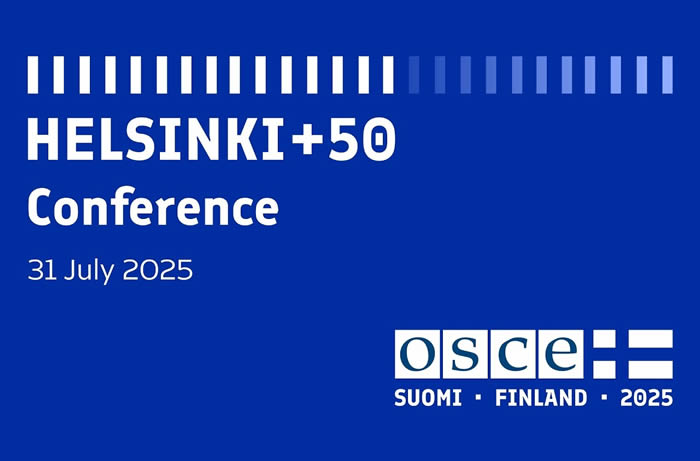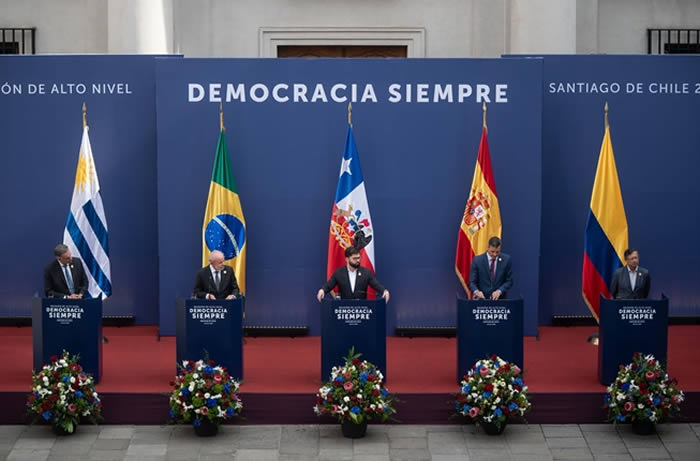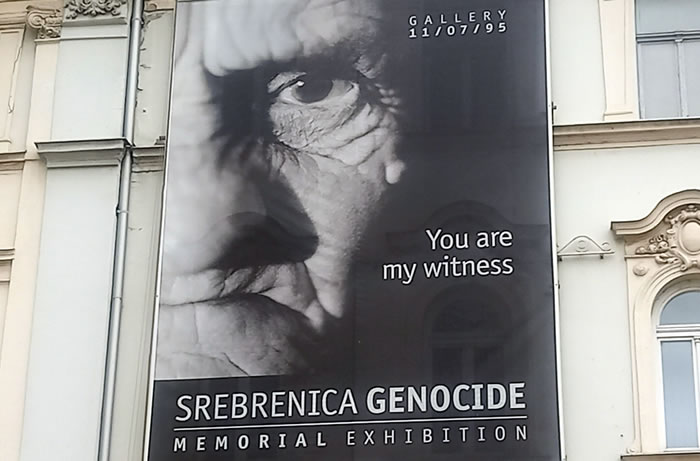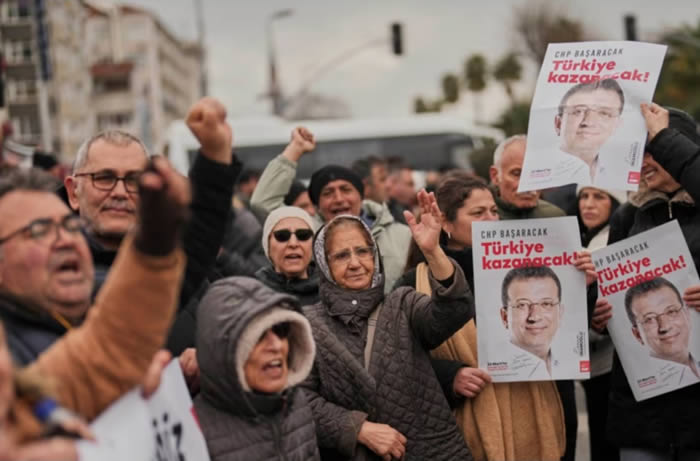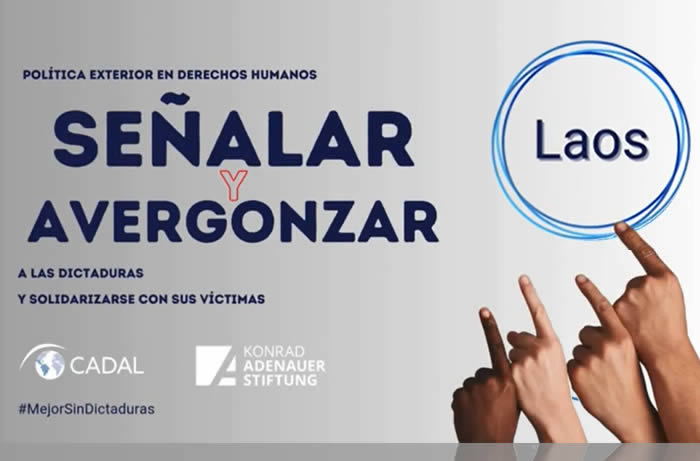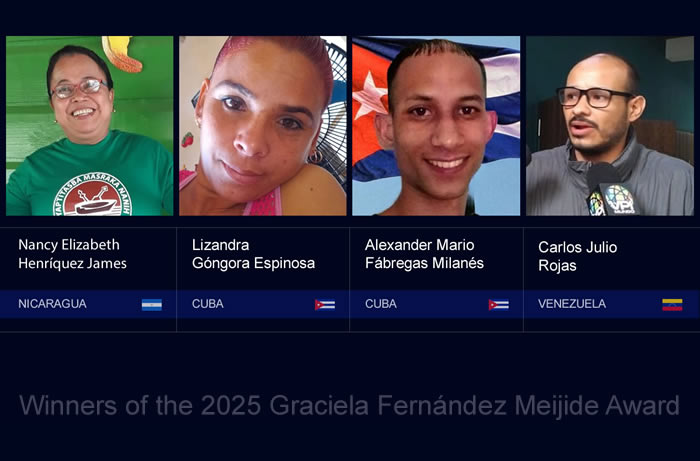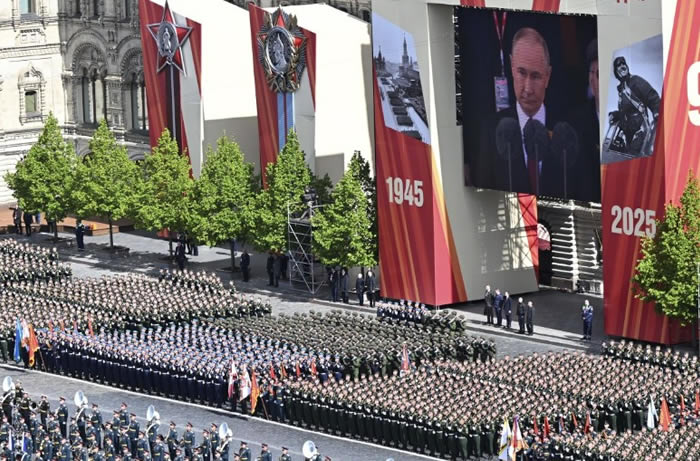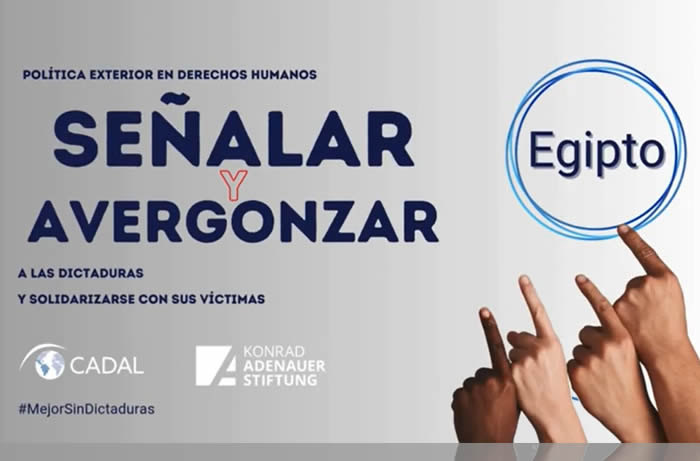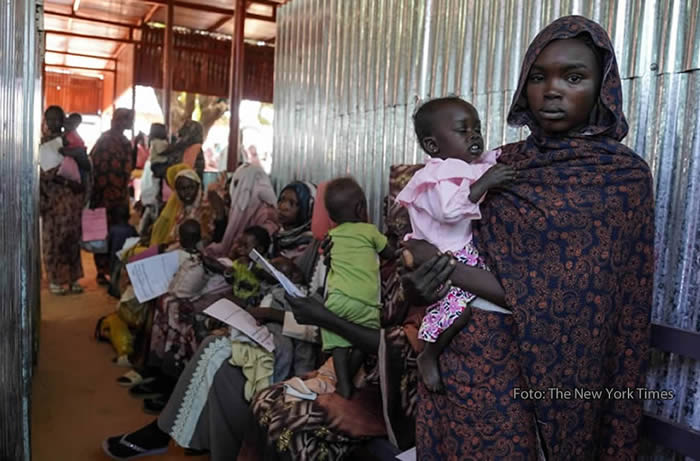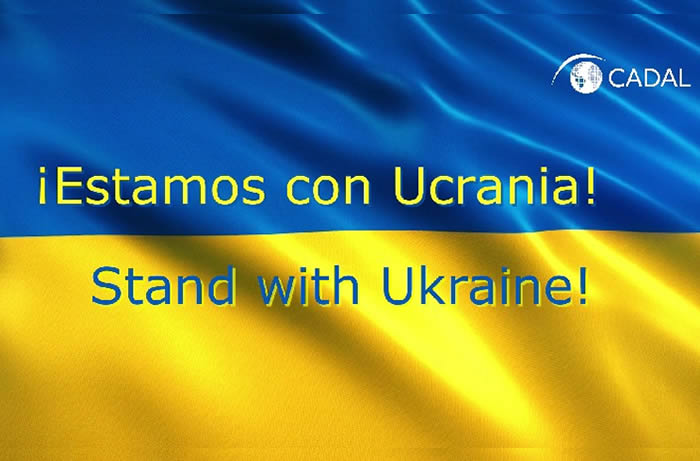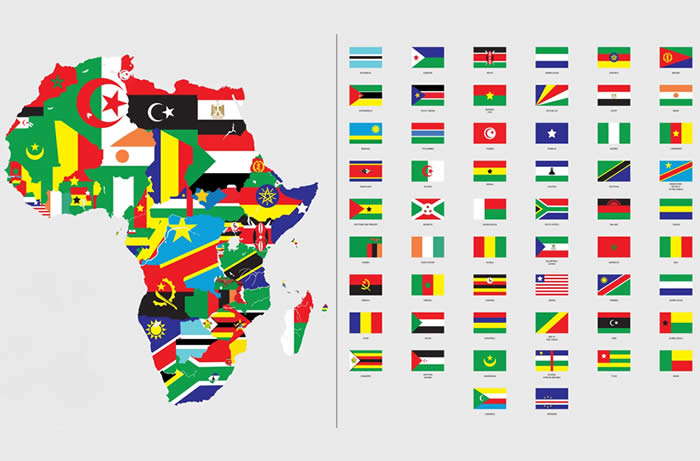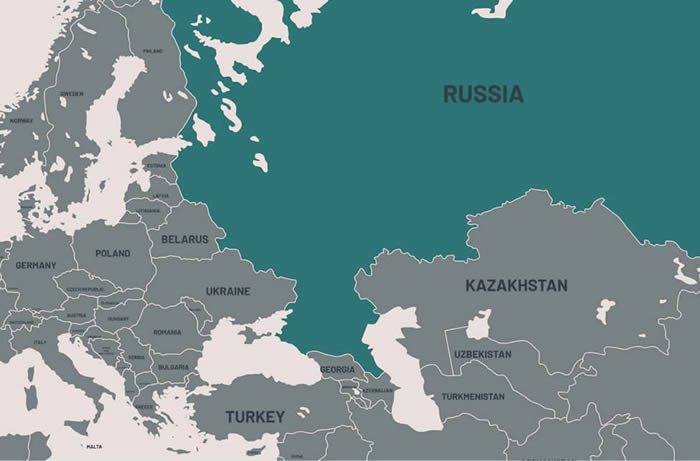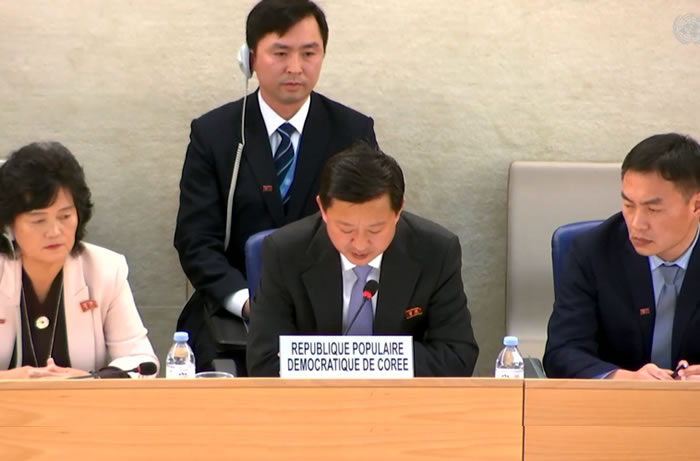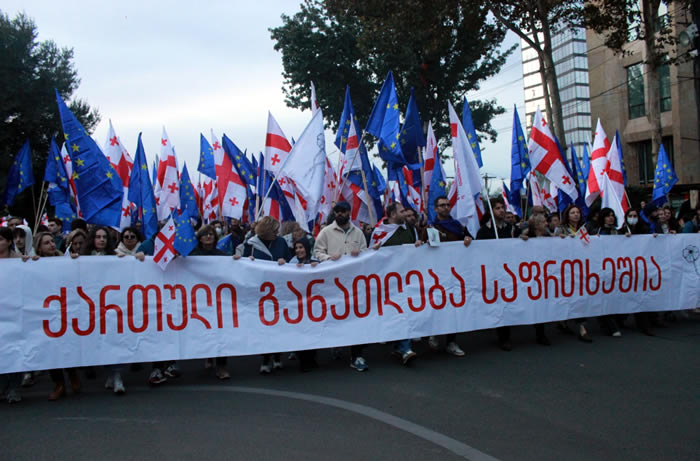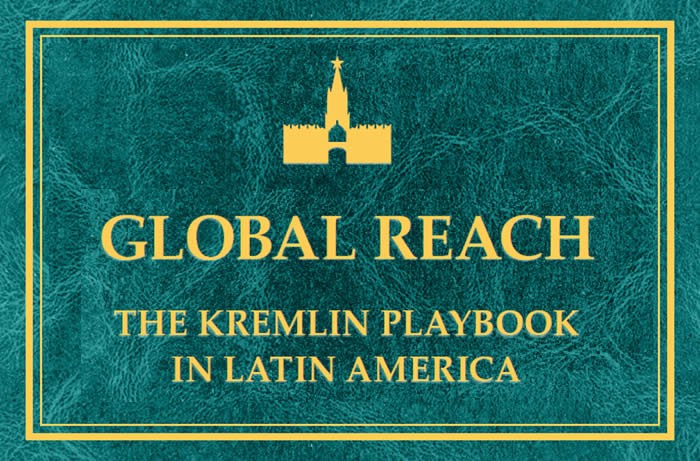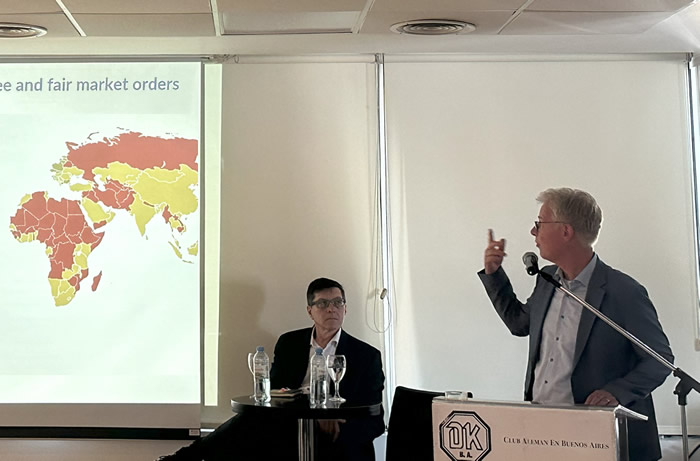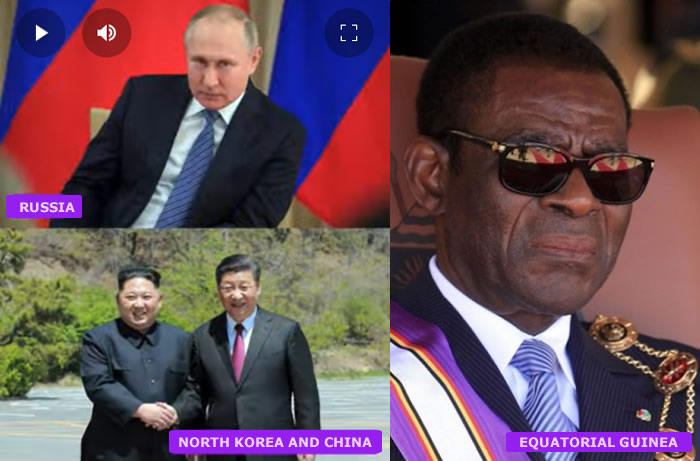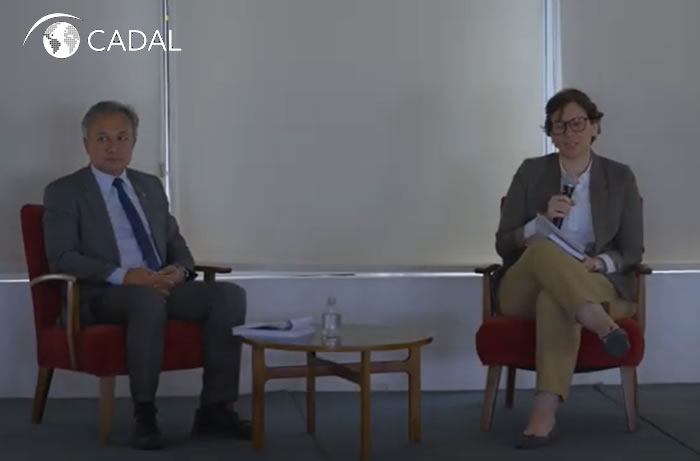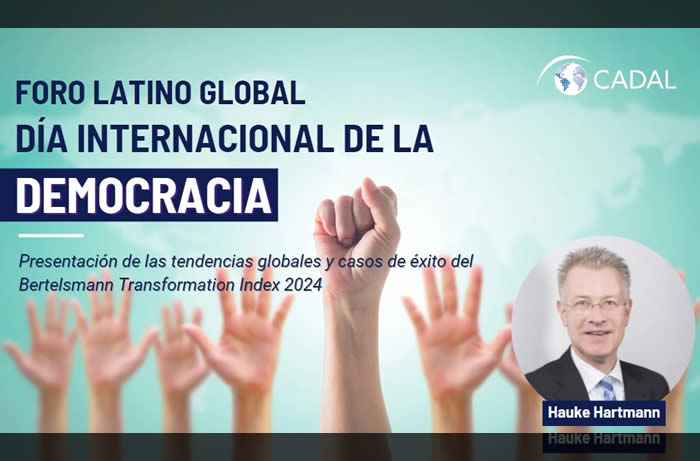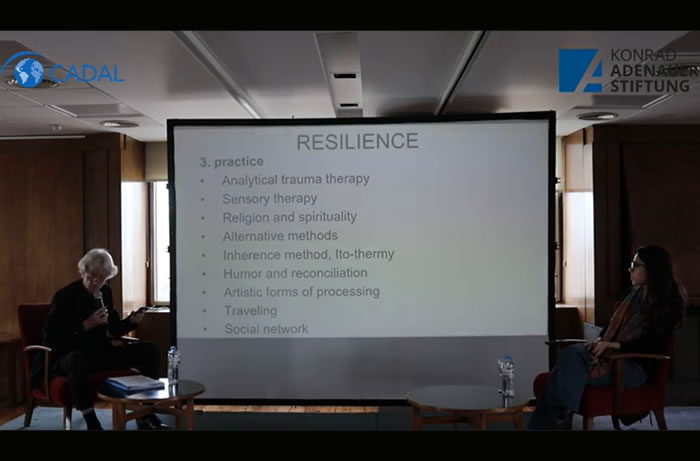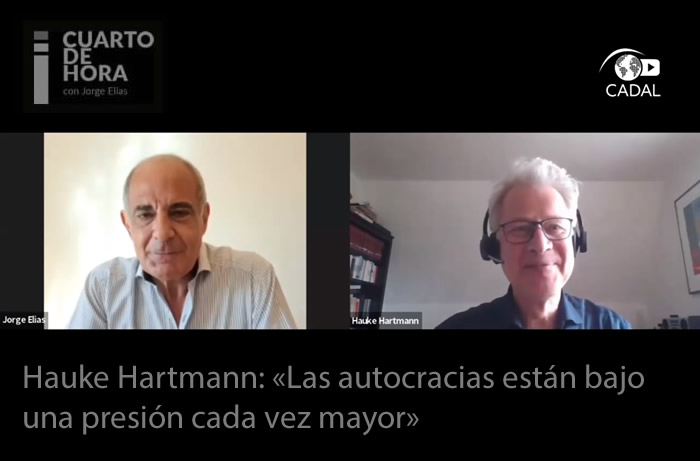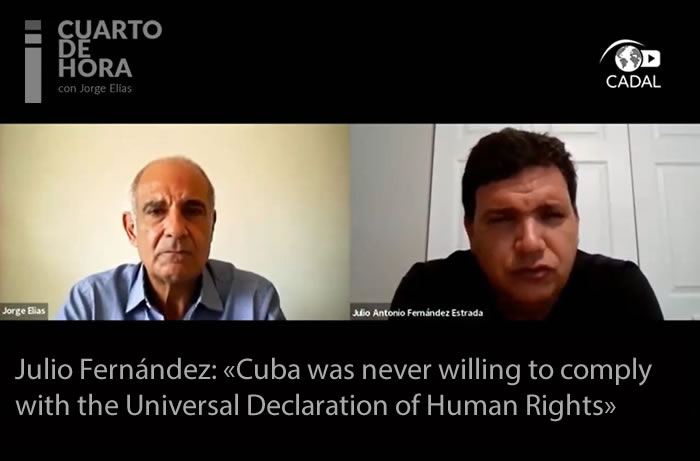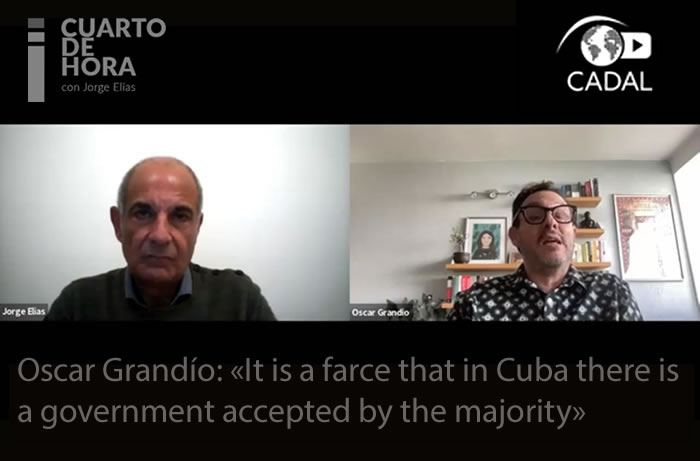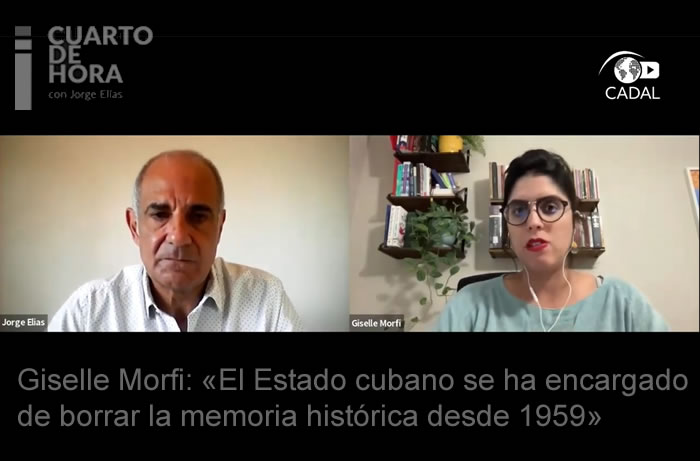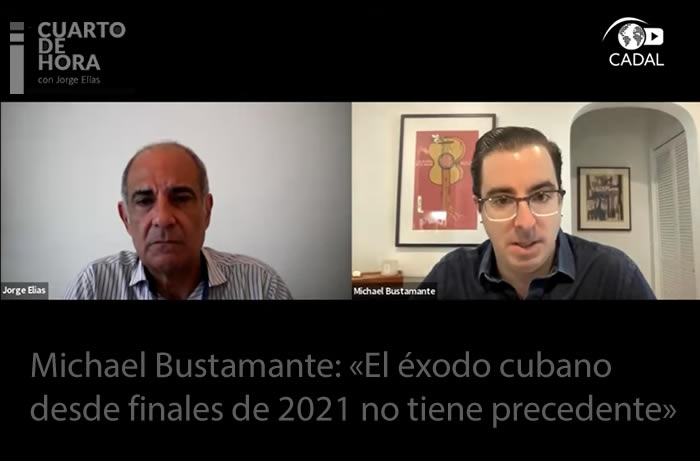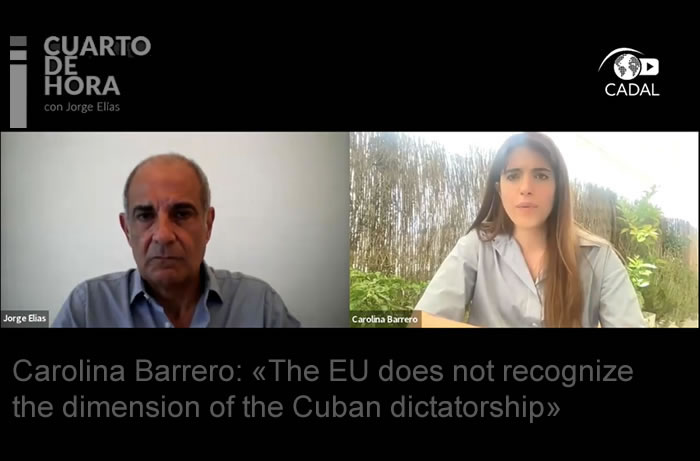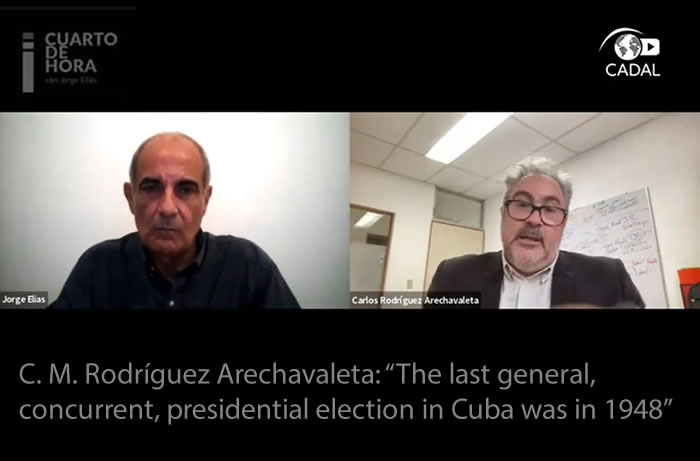Articles
International Relations and Human Rights Observatory
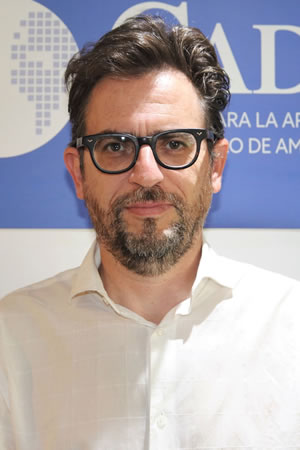 07-07-2021
07-07-2021Fernández at the celebration of the Chinese Communist Party: an indifferent obsequiousness with millions of victims
Once again it is not understood how the government decides with regrettable obsequiousness - worthy of “carnal relations” - to celebrate the birthday of dictators. Moreover, he does it at a party full of autocratic guests from all regions and trends, as evidenced by presences ranging from the sanguinary Philippine leader Rodrigo Duterte to the Cuban autocrat Miguel Diaz Canel. From right to left, from east to west and from north to south.
By Brian Schapira
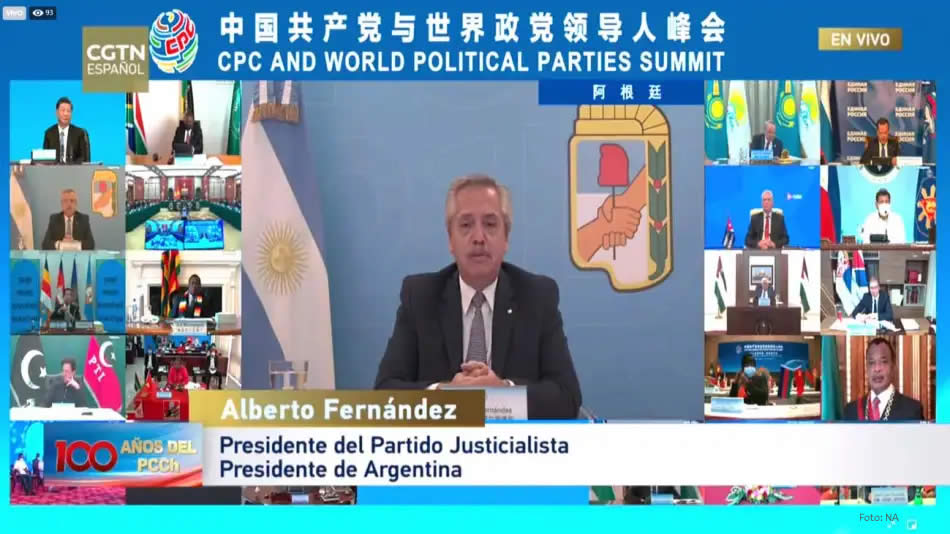
The presence of President Alberto Fernández at the celebration of the 100th anniversary of the Chinese Communist Party (CCP) reveals once again the contradictions in Argentina's foreign policy on Human Rights. Although he attended in his capacity as head of the Justicialista Party (PJ), his presence cannot be separated from his role as President of the Nation.
The CCP decides the destiny of its country since 1949 with an iron fist, under an extremely authoritarian one-party system. There are many and varied allegations of serious human rights violations against the Chinese regime today, and throughout its history.
Currently the most serious accusations focus on the situation in the Xinjiang Uyghur Autonomous Region. Recently, a group of more than twenty major human rights organizations, based on reports from Amnesty International and Human Rights Watch, spoke at the UN Human Rights Council itself. Addressing the UN High Commissioner for Human Rights, Michele Bachelet, they asked her to urgently strengthen remote monitoring of China - as the regime prevents any type of “in situ” access - and to initiate public reports on the situation throughout the country, focusing especially on the Uyghur, Tibetan and Hong Kong regions.
The aforementioned reports by Amnesty and Human Rights Watch conclude that the Chinese government is committing crimes against humanity against the Muslim Uighur population and other groups.
There are also many other accusations that include - just to mention a few - persecution, imprisonment and forced disappearances of dissidents, the absolute lack of freedom of the press and repression of any type of peaceful protest. Already last February, Bachelet pointed out to China situations of restriction of the most elementary civil and political liberties in the name of national security; arbitrary criminal charges, arrests and unfair trials against activists, lawyers and human rights defenders; and investigations against more than 600 people in Hong Kong for participating in protests against the national security law. He also referred to expert claims that refer that at least one million Muslims lived in detention camps in the Xianjiang region.
On another level, the "fraternity" between the Justicialista Party (PJ) of Argentina and the CCP should be contradictory - or perhaps not so much, given certain authoritarian features of Peronism throughout its history. If the PJ has tried to represent the rights of the workers and part of its foundational bases claimed to vindicate the right to labor unionization, then how is it that it so lightly twins and flatters a party that supports an economic system that is truly a savage capitalism, which is accomplice of labor exploitation and practically completely prohibits a true freedom to associate in unions?
The International Trade Union Confederation (ITUC) is an organization that affiliates the various national trade union centers. The CGT (General Confederation of Workers), the CTA (Central of Argentine Workers) and the CTA Autónoma (Autonomous Central of Argentine Workers) belong to it. These centrals, and the organizations affiliated to them, could never exist in China. The ITUC's “Global Rights Index” rates countries on a scale of 1 to 5 based on the degree of respect for workers' rights, showing which are the worst countries in the world to work in. In the countries that are classified in group 5, workers' rights are not guaranteed, being the worst qualification.
It is precisely this rating of 5 that China deserves according to the ITUC, which points out for example - among other issues - that: “The right to strike was removed in 1982. The Government frequently uses public order laws to crack down on legal activists and trade unionists. It is not possible for a worker to participate in a legitimate strike or demonstration without violating Chinese law that prohibits the disturbance of public order. In addition, it is common for the prosecutor and the court to view industrial actions taken by workers as public security violations rather than as the exercise of fundamental rights”
Just to give an example, among whom there must be thousands, it is worth mentioning the case of Lee Cheuk Yan, Secretary General of the Hong Kong Confederation of Trade Unions, who has recently been sentenced to 18 months in prison for inciting, organizing and participating in unauthorized assemblies on October 1, 2019. This sentence was added to another of 18 months in prison that had been imposed on him in April 2021 in relation to another act for democracy in August 2019. The PJ and the Argentine government shouldn't they rather show solidarity with the persecution suffered by the union leader?
After the ambiguous and complicit positions that it has been showing with the dictatorships of Nicaragua and Venezuela, the Argentine government and the PJ decide to side with one of the most repressive and politically closed dictatorial regimes in the world.
Once again, it is not possible to understand how the government, to which according to the Chief of the Cabinet of Ministers Santiago Cafiero, nobody should "come and say what to do with human rights", decides with a regrettable obsequiousness- worthy of “carnal relations” – to celebrate the birthday of dictators. For worse it does it at a party full of autocratic guests from all regions and trends, as evidenced by presences ranging from the sanguinary Philippine leader Rodrigo Duterte to the Cuban autocrat Miguel Diaz Canel. From right to left, from east to west and from north to south.
It is not precisely a celebration of gratitude due to the international democratic solidarity received by the victims of the last Argentine dictatorship, while Cuba and the USSR blocked resolutions against Videla at the then UN Human Rights Commission.
Neither the opening of markets nor mutual businesses, nor investments - about which we must also be very vigilant - justify this overacting of President Fernández, which entails great contempt for the systematic violations of human rights.
 Brian SchapiraAssociate ResearcherBrian Schapira is a Lawyer (JD) graduated from the University of Buenos Aires, with a Master degree (LLM) in International and Comparative Law from Southern Methodist University - Dedman School of Law, Dallas - Texas - USA) and a Postgraduate in Oil and Gas Law from the University of Buenos Aires ).
He was an intern of the International Clerkship Program (sponsored by S.M.U.) at the Federal Justice for the Northern District of Texas.
As a Lawyer he worked for law firms in Buenos Aires and as Legal Advisor of the Ministry of Justice and Security of the Autonomous City of Buenos Aires; Legal Advisor in the Legislature of the Autonomous City of Buenos Aires; Head of the Legal Department of the Tzedaká Foundation; and Lawyer of the Delegation of Argentine Jewish Associations (DAIA).
He was Under Secretary for the Protection and International Liaison on Human Rights of Argentina, between December 2015 and December 2019.
Brian SchapiraAssociate ResearcherBrian Schapira is a Lawyer (JD) graduated from the University of Buenos Aires, with a Master degree (LLM) in International and Comparative Law from Southern Methodist University - Dedman School of Law, Dallas - Texas - USA) and a Postgraduate in Oil and Gas Law from the University of Buenos Aires ).
He was an intern of the International Clerkship Program (sponsored by S.M.U.) at the Federal Justice for the Northern District of Texas.
As a Lawyer he worked for law firms in Buenos Aires and as Legal Advisor of the Ministry of Justice and Security of the Autonomous City of Buenos Aires; Legal Advisor in the Legislature of the Autonomous City of Buenos Aires; Head of the Legal Department of the Tzedaká Foundation; and Lawyer of the Delegation of Argentine Jewish Associations (DAIA).
He was Under Secretary for the Protection and International Liaison on Human Rights of Argentina, between December 2015 and December 2019.

The presence of President Alberto Fernández at the celebration of the 100th anniversary of the Chinese Communist Party (CCP) reveals once again the contradictions in Argentina's foreign policy on Human Rights. Although he attended in his capacity as head of the Justicialista Party (PJ), his presence cannot be separated from his role as President of the Nation.
The CCP decides the destiny of its country since 1949 with an iron fist, under an extremely authoritarian one-party system. There are many and varied allegations of serious human rights violations against the Chinese regime today, and throughout its history.
Currently the most serious accusations focus on the situation in the Xinjiang Uyghur Autonomous Region. Recently, a group of more than twenty major human rights organizations, based on reports from Amnesty International and Human Rights Watch, spoke at the UN Human Rights Council itself. Addressing the UN High Commissioner for Human Rights, Michele Bachelet, they asked her to urgently strengthen remote monitoring of China - as the regime prevents any type of “in situ” access - and to initiate public reports on the situation throughout the country, focusing especially on the Uyghur, Tibetan and Hong Kong regions.
The aforementioned reports by Amnesty and Human Rights Watch conclude that the Chinese government is committing crimes against humanity against the Muslim Uighur population and other groups.
There are also many other accusations that include - just to mention a few - persecution, imprisonment and forced disappearances of dissidents, the absolute lack of freedom of the press and repression of any type of peaceful protest. Already last February, Bachelet pointed out to China situations of restriction of the most elementary civil and political liberties in the name of national security; arbitrary criminal charges, arrests and unfair trials against activists, lawyers and human rights defenders; and investigations against more than 600 people in Hong Kong for participating in protests against the national security law. He also referred to expert claims that refer that at least one million Muslims lived in detention camps in the Xianjiang region.
On another level, the "fraternity" between the Justicialista Party (PJ) of Argentina and the CCP should be contradictory - or perhaps not so much, given certain authoritarian features of Peronism throughout its history. If the PJ has tried to represent the rights of the workers and part of its foundational bases claimed to vindicate the right to labor unionization, then how is it that it so lightly twins and flatters a party that supports an economic system that is truly a savage capitalism, which is accomplice of labor exploitation and practically completely prohibits a true freedom to associate in unions?
The International Trade Union Confederation (ITUC) is an organization that affiliates the various national trade union centers. The CGT (General Confederation of Workers), the CTA (Central of Argentine Workers) and the CTA Autónoma (Autonomous Central of Argentine Workers) belong to it. These centrals, and the organizations affiliated to them, could never exist in China. The ITUC's “Global Rights Index” rates countries on a scale of 1 to 5 based on the degree of respect for workers' rights, showing which are the worst countries in the world to work in. In the countries that are classified in group 5, workers' rights are not guaranteed, being the worst qualification.
It is precisely this rating of 5 that China deserves according to the ITUC, which points out for example - among other issues - that: “The right to strike was removed in 1982. The Government frequently uses public order laws to crack down on legal activists and trade unionists. It is not possible for a worker to participate in a legitimate strike or demonstration without violating Chinese law that prohibits the disturbance of public order. In addition, it is common for the prosecutor and the court to view industrial actions taken by workers as public security violations rather than as the exercise of fundamental rights”
Just to give an example, among whom there must be thousands, it is worth mentioning the case of Lee Cheuk Yan, Secretary General of the Hong Kong Confederation of Trade Unions, who has recently been sentenced to 18 months in prison for inciting, organizing and participating in unauthorized assemblies on October 1, 2019. This sentence was added to another of 18 months in prison that had been imposed on him in April 2021 in relation to another act for democracy in August 2019. The PJ and the Argentine government shouldn't they rather show solidarity with the persecution suffered by the union leader?
After the ambiguous and complicit positions that it has been showing with the dictatorships of Nicaragua and Venezuela, the Argentine government and the PJ decide to side with one of the most repressive and politically closed dictatorial regimes in the world.
Once again, it is not possible to understand how the government, to which according to the Chief of the Cabinet of Ministers Santiago Cafiero, nobody should "come and say what to do with human rights", decides with a regrettable obsequiousness- worthy of “carnal relations” – to celebrate the birthday of dictators. For worse it does it at a party full of autocratic guests from all regions and trends, as evidenced by presences ranging from the sanguinary Philippine leader Rodrigo Duterte to the Cuban autocrat Miguel Diaz Canel. From right to left, from east to west and from north to south.
It is not precisely a celebration of gratitude due to the international democratic solidarity received by the victims of the last Argentine dictatorship, while Cuba and the USSR blocked resolutions against Videla at the then UN Human Rights Commission.
Neither the opening of markets nor mutual businesses, nor investments - about which we must also be very vigilant - justify this overacting of President Fernández, which entails great contempt for the systematic violations of human rights.

